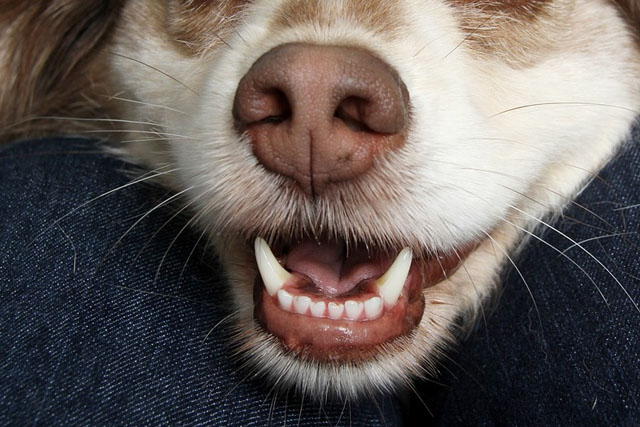My Puppy Bites My Son: Effective Ways to Stop Puppy Biting


Understanding the Behavior
It is not uncommon for puppies to bite, especially during their teething phase. However, when your puppy starts biting your son, it can be concerning and potentially dangerous. Understanding why puppies bite is the first step in addressing this behavior.
Puppies explore the world with their mouths, and biting is a natural part of their development. They use their mouths to play, communicate, and learn about their environment. Additionally, puppies may bite when they are excited, anxious, or seeking attention.
It is important to remember that puppies do not have the same bite inhibition as adult dogs. They have not yet learned to control the force of their bites, which is why their bites can be painful, even if they don't mean to hurt anyone.
Teaching Bite Inhibition
One of the most effective ways to stop puppy biting is to teach them bite inhibition. Bite inhibition is the ability for a dog to control the force of their bites. This is a crucial skill for dogs to learn, as it helps prevent injuries in the future.
To teach bite inhibition, you can start by yelping or saying "ouch" in a high-pitched voice whenever your puppy bites too hard. This mimics the way puppies communicate with each other during play. By doing this, you are letting your puppy know that their bite was too rough.
If your puppy continues to bite, you can try redirecting their attention to a chew toy or bone. This teaches them that biting on appropriate objects is acceptable, while biting on people is not.
It is important to be patient and consistent when teaching bite inhibition. Puppies learn through repetition and positive reinforcement, so continue to reinforce good behavior and discourage biting.
Redirecting the Behavior
In addition to teaching bite inhibition, it is important to redirect your puppy's biting behavior towards more appropriate outlets. Provide your puppy with plenty of chew toys and interactive toys that can keep them engaged and entertained.
When your puppy starts to bite your son, immediately remove your son from the situation and redirect your puppy's attention to a toy. This helps your puppy understand that biting people is not acceptable, but biting toys is encouraged.
Consistency is key when redirecting the behavior. Make sure everyone in the household is on the same page and follows the same approach. This will help your puppy understand the boundaries and reduce the likelihood of them biting your son.
Consistency and Positive Reinforcement
Consistency is crucial when it comes to stopping puppy biting. Make sure everyone in the family is consistent in their approach and enforces the same rules. This will prevent confusion for your puppy and help them understand what is expected of them.
Positive reinforcement is also essential in training your puppy to stop biting. Whenever your puppy shows good behavior, such as playing gently or chewing on appropriate toys, reward them with praise, treats, or playtime. This positive reinforcement will reinforce the desired behavior and motivate your puppy to continue behaving appropriately.
Avoid using punishment or physical force when your puppy bites. This can lead to fear or aggression and may worsen the biting behavior. Instead, focus on positive reinforcement and redirecting their attention to appropriate outlets.
Supervision and Management
Supervision and management play a crucial role in stopping puppy biting. Always supervise interactions between your puppy and your son, especially during the early stages of training. This allows you to intervene and redirect the behavior if necessary.
If you are unable to supervise, consider using baby gates or crates to separate your puppy from your son. This ensures that your puppy cannot engage in biting behavior when you are not around to intervene.
Additionally, make sure your puppy gets plenty of exercise and mental stimulation. A tired puppy is less likely to engage in biting behavior out of boredom or excess energy. Take your puppy for regular walks, play interactive games, and provide them with puzzle toys to keep them mentally and physically stimulated.
Seeking Professional Help
If your puppy's biting behavior persists or becomes more aggressive, it may be necessary to seek professional help. A professional dog trainer or behaviorist can assess the situation and provide tailored guidance and training techniques to address the issue.
They can help identify any underlying causes for the biting behavior and develop a training plan that suits your puppy's needs. They may also provide additional resources and support to ensure the safety and well-being of your son and your puppy.
Remember, stopping puppy biting requires patience, consistency, and positive reinforcement. With the right approach and training, you can teach your puppy to control their biting behavior and create a safe and harmonious environment for your son and your furry friend.


Related posts